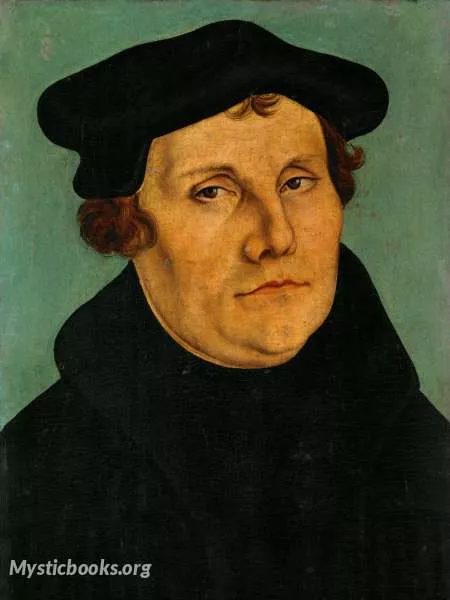
Timeline
Title
Country/Nationality
Martin Luther
Martin Luther was a German professor of theology, priest, author, composer, Augustinian monk, and a seminal figure in the Reformation. Luther was ordained to the priesthood in 1507. He came to reject several teachings and practices of the Roman Catholic Church; in particular, he disputed the view on indulgences. Luther proposed an academic discussion of the practice and efficacy of indulgences in his Ninety-five Theses of 1517. His refusal to renounce all of his writings at the demand of Pope Leo X in 1520 and the Holy Roman Emperor Charles V at the Diet of Worms in 1521 resulted in his excommunication by the pope and condemnation as an outlaw by the Holy Roman Emperor.
Luther taught that salvation and, consequently, eternal life are not earned by good deeds but are received only as the free gift of God's grace through the believer's faith in Jesus Christ as redeemer from sin. His theology challenged the authority and office of the pope by teaching that the Bible is the only source of divinely revealed knowledge, and opposed sacerdotalism by considering all baptized Christians to be a holy priesthood. Those who identify with these, and all of Luther's wider teachings, are called Lutherans, though Luther insisted on Christian or Evangelical (German: evangelisch) as the only acceptable names for individuals who professed Christ.
His translation of the Bible into the German vernacular (instead of Latin) made it more accessible to the laity, an event that had a tremendous impact on both the church and German culture. It fostered the development of a standard version of the German language, added several principles to the art of translation, and influenced the writing of an English translation, the Tyndale Bible. His hymns influenced the development of singing in Protestant churches. His marriage to Katharina von Bora, a former nun, set a model for the practice of clerical marriage, allowing Protestant clergy to marry.
In two of his later works, Luther expressed antagonistic, violent views towards Jews and called for the burnings of their synagogues and their deaths. His rhetoric was not directed at Jews alone but also towards Roman Catholics, Anabaptists, and nontrinitarian Christians. Luther died in 1546 with Pope Leo X's excommunication still in effect.
Books by Martin Luther
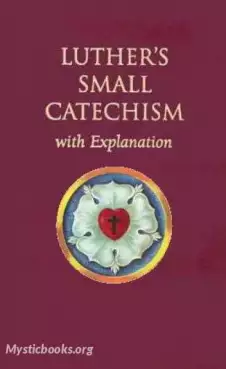
The Small Catechism
Luther's Small Catechism is a catechism written by Martin Luther and published in 1529 for the training of children. Luther's Small Catechism reviews the Ten Commandments, the Apostles' Creed, the Lord's Prayer, the Sacrament of Holy Baptism, the Off...
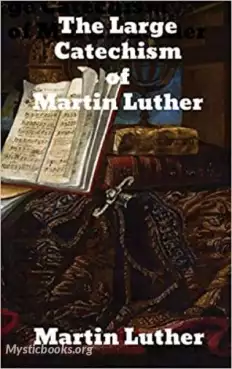
The Large Catechism
Luther's Large Catechism is a catechism by Martin Luther. It consists of works written by Luther and compiled Christian canonical texts, published in April 1529. This book was addressed particularly to clergymen to aid them in teaching their congrega...
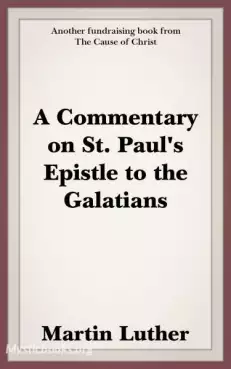
Commentary on St. Paul's Epistle to the Galatians
Martin Luther strove to give a verse by verse exegesis of the Epistle to the Galatians in the work. The original work, written in Latin in around 1516, was much longer. This translation by Theodore Graebner strove to produce a copy of the work in a f...
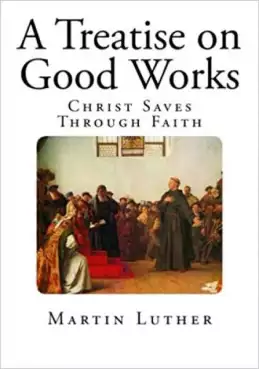
A Treatise on Good Works
In this exposition of the Ten Commandments, Martin Luther attempts to build a bridge between justification by faith and the life of the Christian manifested by good works.
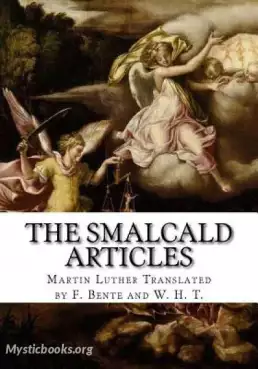
The Smalcald Articles
The Smalcald Articles or Schmalkald Articles are a summary of Lutheran doctrine, written by Martin Luther in 1537 for a meeting of the Schmalkaldic League in preparation for an intended ecumenical Council of the Church.
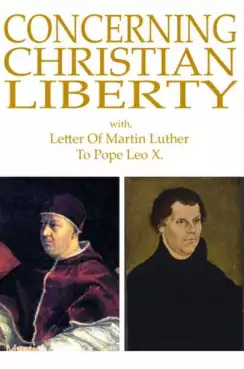
Concerning Christian Liberty
Early in the course of the Reformation Martin Luther penned a trilogy of foundational documents addressing the Church, the Nobility and the Christian life. This document concerning the Christian life expounds the famous paradox: "A Christian man is t...

On the Babylonian Captivity of the Church
Prelude on the Babylonian Captivity of the Church was the second of the three major treatises published by Martin Luther in 1520, coming after the Address to the Christian Nobility of the German Nation (August 1520) and before On the Freedom of a Chr...

To the Christian Nobility of the German Nation
To the Christian Nobility of the German Nation is the first of three tracts written by Martin Luther in 1520. In this work, he defined for the first time the signature doctrines of the priesthood of all believers and the two kingdoms. The work was wr...

The Bondage of the Will
On the Bondage of the Will by Martin Luther, argued that people can only achieve salvation or redemption through God, and could not choose between good and evil through their own willpower. It was published in December 1525. It was his reply to Desi...
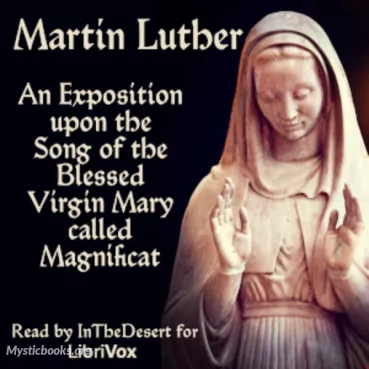
An Exposition upon the Song of the Blessed Virgin Mary called Magnificat
It is a religious text that provides an in-depth analysis of the Magnificat, a hymn of praise found in the Gospel of Luke. The book was written by Martin Luther, the renowned theologian and key figure in the Protestant Reformation, and was first publ...
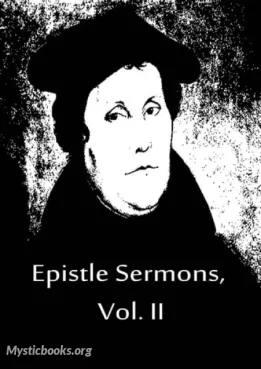
Epistle Sermons, Volume 2
It is a collection of sermons based on his interpretations of the Epistles of the New Testament. This book is a part of a larger series of works that Luther wrote during the Reformation period in Europe. The sermons in this volume were originally pr...
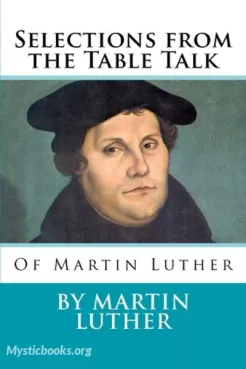
Selections from the Table Talk of Martin Luther
"Selections from the Table Talk of Martin Luther" presents a fascinating compilation of the profound conversations and insights shared by the renowned theologian, Martin Luther. In this collection, readers are transported back in time to witness the...
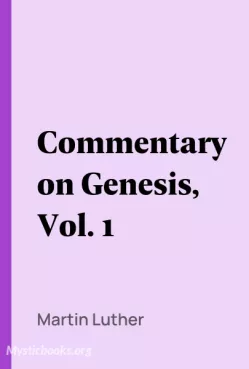
Commentary on Genesis, Volume 1
Dive into the profound wisdom of one of history's most influential theologians with "Commentary on Genesis, Volume 1" by Martin Luther. Unveil the hidden layers of the ancient biblical text as Luther's words echo through the centuries, offering fresh...

Kleine Katechismus
Der Kleine Katechismus ist eine kurze Schrift, die Martin Luther 1529 verfasst hat. Er hat in den lutherischen Kirchen Bekenntnis- und Lehrcharakter; behutsam an die heutige Sprache angepasst gilt er nach wie vor. Luther hat den kleinen Katechismus g...
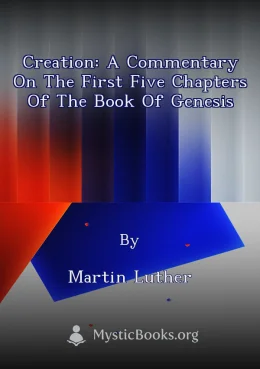
Creation: A Commentary on the First Five Chapters of the Book of Genesis
Martin Luther's 'Creation' delves into the first five chapters of Genesis, offering a detailed commentary on its meaning and significance. The book reflects Luther's distinctive theological perspectives, particularly his emphasis on the Gospel of Chr...
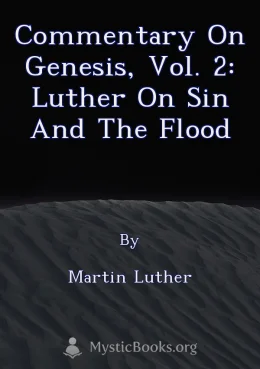
Commentary on Genesis, Vol. 2: Luther on Sin and the Flood
Martin Luther's commentary on the book of Genesis, volume 2, covers chapters four to nine inclusive. In this volume, Luther explores the themes of sin and the flood, arguing that sin is the root of all human suffering and that the flood was God's jud...
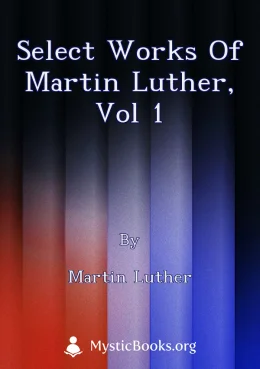
Select Works of Martin Luther, Vol 1
This collection of Martin Luther's writings explores the core tenets of Lutheran theology, with a particular emphasis on the doctrine of salvation by faith alone. Luther argues that salvation is a gift from God, received through faith in Jesus Christ...
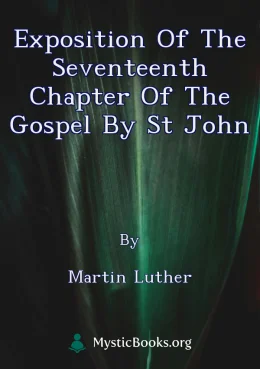
Exposition of the Seventeenth Chapter of the Gospel by St John
This work by Martin Luther offers a detailed exposition of the 17th chapter of the Gospel of John, focusing on Jesus' prayer for his disciples and for the unity of believers. Luther's commentary explores the theological implications of Jesus' words,...